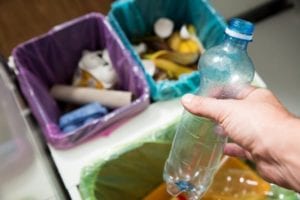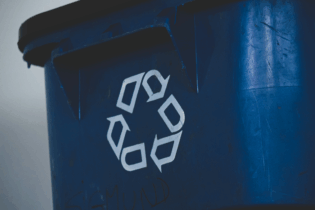The Institute of Waste Management of Southern Africa (IWMSA) is calling on citizens to see waste as resource and to start recycling more.
According to the Department of Environmental Affairs South Africans generated approximately 54.2 million tonnes of general waste in 2017 alone. Of these millions of tonnes of waste only 38.6% was recycled, meaning that almost two thirds of the country’s waste still goes to landfill sites. The Institute says that by recognising recyclables as the ‘seventh resource’, consumers can help municipalities and waste companies repurpose recycling materials into the market for further economic benefit. “In celebration of Global Recycling Day on 18 March 2019, we would like to encourage consumers to see their waste as an opportunity and a resource. By using resources sparsely and knowing what can be recycled, we can all contribute to a cleaner and healthier environment,” says Leon Grobbelaar, President of the (IWMSA)“Compared to European countries such as Germany which boasted with the world’s highest recycling rate at 56% in 2018, South Africa still has a long way to go in terms of increasing our country’s recycling rates,” says Grobbelaar.“There are various waste streams and most of them are appropriate for recycling. Beyond saving raw materials, creating new glass, plastic, or paper from recycled products uses significantly less energy than those made from virgin materials. Recycling also helps us move towards a circular economy where very little waste is generated,” Grobbelaar adds.
Common waste streams
Here are the most common waste streams and recyclables and the best course of action to keep it out of landfill sites: Cans Nearly all cans and tins can be recycled, and it is estimated that 75% of the nearly one billion tonnes of aluminium ever produced has been recycled and is still in use.Electronic waste (E-waste)
E-waste is anything that has processed or supplied electricity and is now out of use, and includes computers, phones, household appliances and light bulbs, to name a few. A lot of supermarkets collect e-waste for recycling, such as old bulbs and batteries. E-Waste can also be sent back to the supplier where it was originally bought. Glass “Most glass containers can be recycled, no matter the colour. Glass bottles do not need to be separated by colour, however it is advisable that the lids are removed,” advises Grobbelaar. Glass and break-ware items that cannot be recycled include: computer and television screens, light bulbs, car head lights, laboratory glass, windscreens, window glass, crystal and opaque drinking glass, mirrors, heat-resistant ovenware, ceramics and clay pots. Paper Paper is another widely accepted waste stream for recycling and includes: newspapers, magazines, office paper, cardboard boxes and pamphlets. Plastic Less than half (43.7%) of the plastic waste generated in South Africa is recycled, which is shocking considering that that a simple water bottle you purchase at the supermarket can take from 70 to 450 years to decompose. “Recycling is certainly something the whole family can participate in. Your household recycling system can be as simple as separating wet and organic waste (food and garden waste); plastics and glass; and paper into three separate bags or containers,” concludes Grobbelaar.






